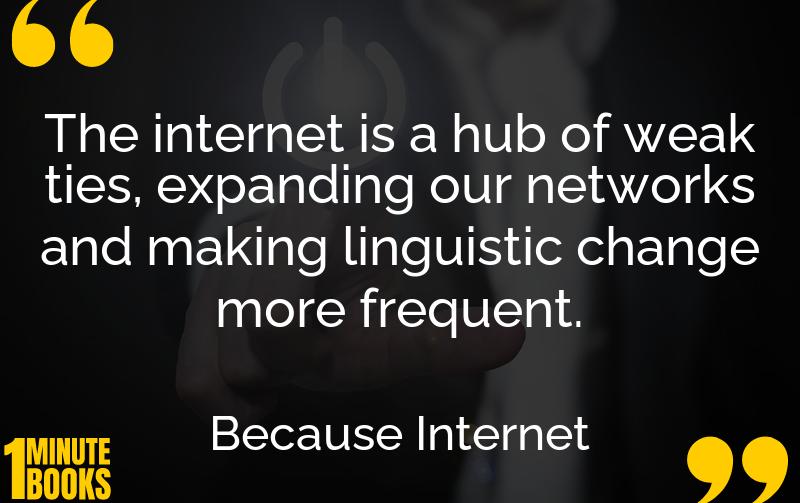
Because Internet explores how digital communication reshapes language, adapting it through informal writing, emojis, and memes to convey meaning and emotion online.
Main Lessons
- Internet culture accelerates language change, merging old and new communication forms.
- Emojis fill the gap of body language in digital messages, adding emotions and context.
- Different generations communicate online uniquely, influenced by their first internet experiences.
- Informal writing challenges traditional grammar, illustrating a shift to conversational tone.
- Social media acts as a ‘third place’, connecting people online similar to real-world gathering spots.
- Memes are modern tools for cultural expression, spreading ideas across communities.
- Networks, strong or weak, significantly influence language change and adaptation.
- Capital letters and punctuation in digital communication convey emotions and emphasis.
- Acronyms simplify online communication, saving time while maintaining message clarity.
- Platform-specific language creates a sense of community among users.
- Internet users leverage memes, not just for humor, but also for critique and social commentary.
- Generational language gaps exist, but understanding each style helps bridge them.
- Digital conversations crystallize community languages and sociolects in global discourse.
- Internet dynamics reveal how communication methods reflect cultural and societal shifts.
- Online interactions can create bonds stronger than some real-life connections, emphasizing virtual community importance.








